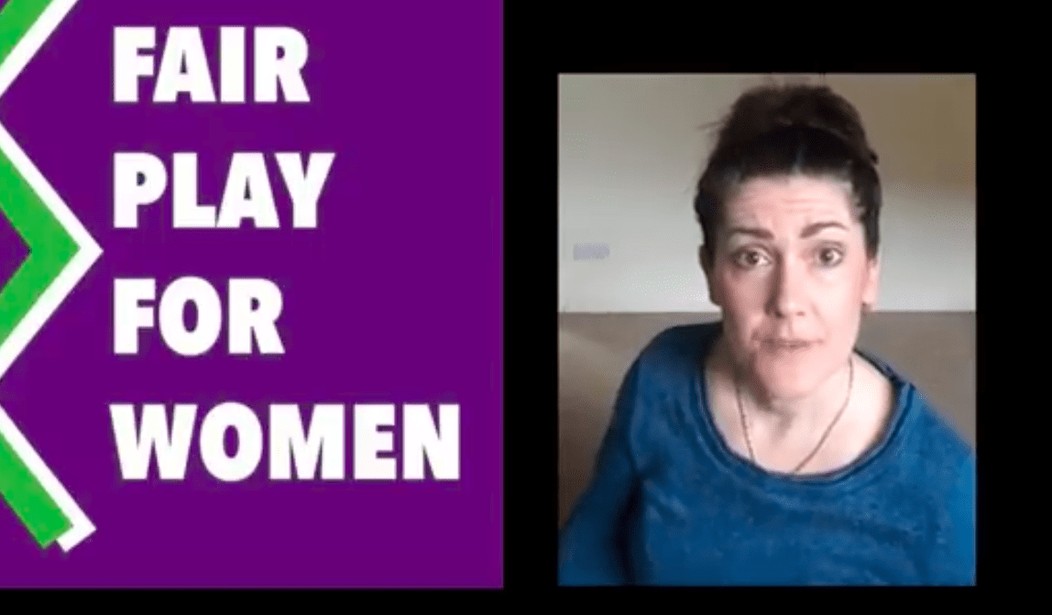Lesbian feminists have begun to speak out against transgender activism and its dangers to women. A British research scientist and women’s rights activist spoke out on these issues, and being called “transphobic” for her activism, on Friday.
Fair Play for Women spokeswoman Dr. Nicola Williams, a research scientist in human biology and feminist, warned that transgender activism “takes away women’s most fundamental right: the right to say no to male-bodied people entering our spaces.”
Williams said she has no qualms with men living as women or women living as men, but she vehemently opposes the idea that women’s spaces should be open to biological men who identify as women.
“Of course if someone wants to live as though they are the opposite sex, that’s their choice and I fully support their right to do so,” Williams told SkyNews in an interview Friday. “But if someone who still has their full male anatomy wants the right to enter women’s changing rooms, or refuges, or to compete against women and girls in sports, and women have no choice about that, that takes away women’s most fundamental right: the right to say no to male-bodied people entering our spaces.”
Williams advocates reform of the Gender Recognition Act (GRA), a law Parliament passed in 2004 to allow people suffering from gender dysphoria (the condition of identifying with the gender opposite their biological sex) to change their legal gender. The government has recently opened a consultation to change the law even further, to allow people to change the legal sex on their birth certificates.
“Some trans campaigners want new rules that would mean any man who simply said ‘I am a woman now’ could legally become female, getting along with it unchallenged access to women’s changing rooms, hostels, NHS wards and other female-only spaces,” Williams explained.
The cultural campaign for transgender acceptance has run ahead of the legal battle. “Organisations are already running ahead of the law and defining women as anyone who says they are one,” she warned. “It’s already happening informally, the law change will cement it in place.”
Williams argued that transgender laws “would punch a huge hole in the hard-won system of women’s legal rights which allow us to say no to male-bodied people being in our spaces. There would be no official way to tell who was male for purposes of single-sex overnight sleeping accommodation, for women’s refuges, or for single-sex sports.”
The Fair Play for Women spokeswoman connected her opposition to transgender activism to the long struggle for women’s rights. “Women fought for generations for the right to be heard and the right to say no to things that affect them,” Williams said. “That is what we are fighting for again today, and I for one will not stop until people in power start listening.”
Many reject her complaints as hateful or “transphobic,” however.
“I was shocked that women who spoke up about this were threatened and harassed,” Williams said. “A trans activist was convicted of the assault of a 60-year-old woman who had gathered with others to attend a meeting at which they could discuss the potential impact on women and girls of such a change to the law.”
“Ordinary women who ask questions about these things on social media are routinely threatened with violence, told they deserve to be punched, or worse,” the feminist added.
Williams linked many feminist issues undermined by transgender activism. “The right to male-free spaces when vulnerable, the right to our dignity and privacy when we undress, and the right to fair competition in sport matter to lots of women and girls, yet hardly anyone in Britain realises those rights are under threat, and already hanging by a thread,” she warned.
The feminist insisted that her opposition to transgender activism is based in science, not irrational fear.
“We at Fair Play For Women believe this issue needs to be discussed rationally, on the basis of the facts,” she declared. “Data isn’t ‘transphobic’. Evidence isn’t ‘hateful’. Facts are just facts, and the plain fact is that the proposed policy of ‘self-identified sex’ would have a huge impact on women and girls.”
Indeed, men invading women’s spaces in the name of transgender acceptance has become a wide-ranging issue. As for men peeping on women in restrooms and changing rooms, a voyeur phenomenon has been documented at Targets across America. In sports, the Boston Marathon allowed at least 5 biological males to compete as women this year, and teen males have defeated women in track in both Connecticut and Alaska.
Williams’ complaints were notable for their restraint. The Fair Play for Women spokeswoman limited her attacks on transgenderism to issues of privacy, safety, and fair play.
Other lesbian feminists have also attacked the idea of encouraging gender transitions for homosexual women. The group “Get the L Out,” which caused a stir at London’s Pride Parade last month, denounced this as “conversion therapy.”
LGBT activists have vehemently opposed any efforts to change someone’s sexual orientation. Since lesbians are defined as women sexually attracted to other women, encouraging a lesbian to become transgender would (theoretically) make her no longer lesbian but a straight man.
“Let the L Out” were not the only activists opposing transgenderism for this reason. Miriam Ben-Shalom, the first lesbian to be reinstated to the U.S. Army after being kicked out for homosexuality, also attacked the transgender movement’s “erasure of women” and “conversion therapy” aimed at lesbians.
Fair Play for Women shows yet again that feminism and transgenderism are incompatible. Expect the cracks in LGBT identity to only get worse as time goes on.
Watch Dr. Williams discuss these issues in a video from February.









Join the conversation as a VIP Member